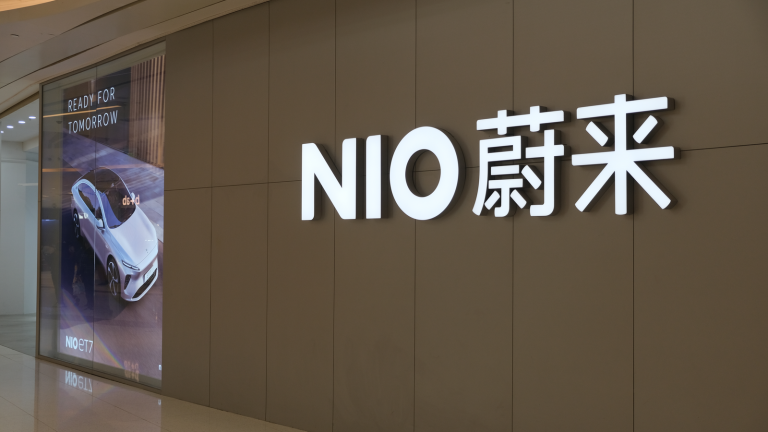Nio (NYSE:NIO) reported its May deliveries on June 1, and Nio stock fell on the news.
Nio delivered a record 20,544 vehicles in May, bringing the number of vehicles delivered year-to-date to 66,217, 51% higher than a year earlier. It is only the second time in the EV maker’s history that it’s delivered 20,000 vehicles in a month.
InvestorPlace’s Eddie Pan reported on June 4 that Bank of America expects Nio to deliver 193,000 vehicles in 2024, 21% higher than a year earlier. With Q1 2024 earnings on tap for Thursday before the markets open.
I don’t possess a crystal ball. The only thing I know is that record deliveries aside, there will be plenty of red ink in the latest quarter’s financials. That shouldn’t come as a surprise to investors.
Despite the losses, the record deliveries suggest Nio is doing its best to avoid becoming a footnote in automotive history.
As I said in May, Nio stock is a buy for risk-tolerant investors. Here’s why I feel this way.
Money in the Bank Helps
Nio received a cash infusion of $2.2 billion last December, on top of the $739 million investment it received earlier in 2023 from an Abu Dhabi government-controlled investment vehicle. The $3 billion is enough to keep it operating throughout 2024 and into 2025.
The sizable sovereign wealth funds in the Middle East have much longer game plans for their investments beyond the next quarter or fiscal year. Having this much patient capital — the Abu Dhabi government owns about 20.1% of Nio — is a significant advantage as it charts its course over the next 12-24 months.
In February, the company licensed its technology to Forseven Limited, a subsidiary of CYVN Holdings LLC, which is behind the Abu Dhabi government’s significant investment in Nio.
The technology license agreement provides Forseven access to and use Nio’s smart electric vehicle technical information, technical solutions, software and intellectual property. In return, Nio will receive technology fees, including a nonrefundable, fixed upfront license fee, plus royalties based on future sales of Forseven products.
Nio’s Altman Z-Score is -0.51. That suggests it could face potential bankruptcy proceedings in the next 24 months.
Fortunately, the Middle East continues to be a hotbed for EV development. Nio’s deep relationship with the Abu Dhabi government should provide a cushion against any potential bankruptcy proceedings.
Losses Per Vehicle Continue to Increase
In 2023, Nio lost $2.92 billion, or $18,246, for each of the 160,038 vehicles it delivered last year. That compares to a net loss of 14.56 billion Chinese yuan ($2.01 billion) in 2022 or $16,415 for each of the 122,447 vehicles delivered in 2022. That’s an 11.1% increase in the net loss per vehicle.
There’s the problematic situation Nio faces. It lost nearly $2,000 for every vehicle it delivered in 2023 compared to 2022.
In the first four months of 2024, it averaged 11,418 deliveries. Thanks to record deliveries in May, the monthly average increased to 13,243. Let’s assume it finishes the year with a monthly average of 15,000 deliveries, or 180,000, 12.5% higher than in 2023.
Based on the above assumptions, Nio could lose $3.65 billion in 2024, or $20,253 per vehicle delivered. On a per-share basis, based on 2.08 billion shares outstanding, it could lose $1.75 a share in the year ahead.
Longtime shareholders can take solace that Tesla (NASDAQ:TSLA) didn’t make an annual profit for the first time until 2020, and that was only because of $1.6 billion in regulatory credits sold to other automakers to meet emission standards.
With solid backing and monthly deliveries growing significantly in 2024, Nio continues to scale its business.
As I said in May, the launch of Onvo, its lower-priced brand, will help increase its economies of scale, working toward a lower loss per vehicle in the second half of 2024 and into 2025.
Nio remains a buy for risk-tolerant investors.
On the date of publication, Will Ashworth did not have (either directly or indirectly) any positions in the securities mentioned in this article. The opinions expressed in this article are those of the writer, subject to the InvestorPlace.com Publishing Guidelines.

